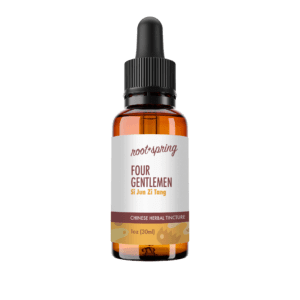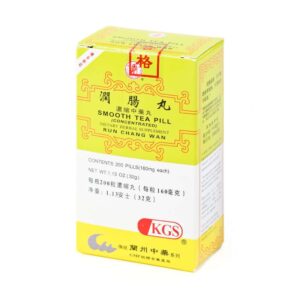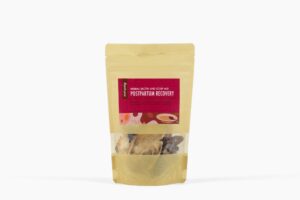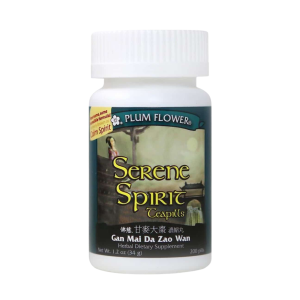For expecting moms, pregnancy and preparing for your baby is just the beginning of your new life as a mother – and your new body.
In the weeks that follow the birth of your baby, you are also reborn as a new version of yourself. While this is an incredible transition, it can come with its fair share of physical and mental challenges. Chinese herbs for postpartum care can help.
Bringing a new life into the world, while miraculous, can also deplete your energy and resources, disrupt your hormonal balance, and strain your emotional well-being. Traditional Chinese Medicine (TCM) has long recognized the unique needs of women during this critical time, and offers powerful practices to support recovery – mind, body, and soul.
Let’s explore the benefits of a holistic, TCM-inspired postpartum care plan and herbal remedies to nurture your health and harmony after childbirth.
Beyond Birth: Your Body Postpartum
The postpartum period, often referred to as the “fourth trimester,” is a time of immense physical and emotional change for a new mother. While you’re bonding with your new baby, there are also significant changes happening in your body as you adapt to this new phase.
After you’ve given birth, your body starts a journey of recovery and adjustment. This period demands extra self-care and support, as your body works to heal and return to an (almost) pre-pregnancy state.
What challenges should you prepare for?
- Wound Healing
Whether it’s a cesarean section incision or perineal tears from a vaginal delivery, your body needs time and nutrients to heal these wounds. Proper care of your wounds, nutrition, and Chinese herbs can help reduce inflammation, relieve pain, and support tissue repair. - Hormonal Imbalances
After delivery, your hormone levels fluctuate significantly as your body transitions from pregnancy to the postpartum period. Estrogen and progesterone levels drop, while prolactin levels rise to encourage milk let-down for breastfeeding. While these hormonal shifts are necessary, they can affect your physical and emotional state, leading to mood swings and symptoms similar to premenstrual syndrome (PMS). - Low Energy
Growing and delivering a new baby is nothing short of exhausting! Coupled with the demands of caring for a newborn, you are likely to experience a significant drop in your energy levels. This is normal and to be expected. The key to improving your energy and supporting your body in the long run is to allow yourself the rest and nourishment you need during this period and release pressure to “bounce back” as soon as possible. - Mood Swings and Postpartum Depression
Emotions can run wild after birth. From feeling down, or having the “baby blues,” to more serious mood imbalances like postnatal depression can be caused by factors like hormonal changes, sleep deprivation, and a bumpy adjustment into motherhood. Thankfully, these issues can be reversed or prevented with early TCM postpartum care and support.
Now that we understand some of the common issues women face postpartum, what can you do to support your body best during this pivotal period?
TCM for Postpartum Care
Traditional Chinese Medicine (TCM) has a deep understanding of the body’s needs during the postpartum period. Beyond making sure you are getting the right vitamins and nutrients to heal and breastfeed, TCM also emphasizes the importance of restoring your overall balance.
At the heart of TCM’s approach to postpartum care are the principles of Qi (energy) and blood. Understanding these can help you harness the wisdom of TCM and create a postpartum wellness plan that supports you and your baby:
- Qi (Energy)
In TCM, Qi is the vital energy that circulates through the body, sustaining life and promoting healing. After childbirth, it’s common to have a dip in your Qi. But, this can lead to fatigue, weakness, and a lowered immune response. Chinese herbs and other TCM practices can help you replenish and strengthen your Qi so you can feel your best again. - Blood
In TCM, blood goes beyond its Western medicine physiological functions to also include nourishing the body and maintaining balance. Postpartum blood loss is common, and can contribute to hormone imbalances, poor sleep, irritability, depression, low milk supply, future infertility, and other symptoms. Nourishing the blood with healing herbs can help improve energy, promote healing, and support emotional stability.
Incorporating TCM principles into your postpartum care routine can offer a gentle, effective way to support your body’s natural healing processes and restore balance. Whether through nourishing foods, herbal remedies, or other TCM practices, these concepts can significantly impact your recovery and overall health postpartum and beyond.
The Best Chinese Herbs for Postpartum Recovery
Chinese herbs are crucial to TCM postpartum recovery. Using herbal medicines in your daily self-care plan can help you return to a state of balance faster, so you can fully enjoy and embrace life as a mom.
Here are four key herbs commonly used in TCM for postpartum recovery cooking and herbal remedies:
- Dang Gui (Angelica Sinensis): Known as “female ginseng,” Dang Gui is known for its ability to boost blood production and promote circulation. After the blood loss associated with childbirth, Dang Gui can help restore your body’s blood supply, which then helps you heal wounds and reduce fatigue faster.
- Huang Qi (Astragalus): This powerful herb is used to boost Qi, or vital energy, throughout the body. It strengthens the immune system and promotes healing, boosts energy, and enhances overall vitality. Huang Qi is particularly beneficial for new mothers experiencing fatigue and weakness, helping to increase energy levels and support the body’s resilience.
- Gan Jiang (Ginger): Did you know this common kitchen spice has profound medicinal properties? Ginger is used in TCM to warm the body and dispel cold, which is particularly important after childbirth. It supports the recovery process by warming the uterus, helping to reduce postpartum bleeding and promote the healing of internal wounds. Its anti-inflammatory properties also make ginger a valuable herb for soothing aches and pains associated with childbirth.
- Zhi Gan Cao (Licorice Root): This sweet herb plays a crucial role in TCM formulations by harmonizing the properties of other herbs. Zhi Gan Cao also supports adrenal function, which can help regulate hormonal imbalances postpartum. It also soothes gastrointestinal upset (in both mom and baby!) and improves energy levels.
These herbs address various postpartum concerns, from wound healing and hormonal balance to energy and blood replenishment. You can use these herbs to make soups, teas, and other healing foods. Or, consider taking them through herbal supplements like the ones below to restore your body (and are safe while breastfeeding).
The Best Chinese Herbal Formulas for a Healthy Postpartum
For Healing & Restoration: Chinese Herbal Soup + Broth Mix for Postpartum Recovery
This herbal soup mix is specifically designed to boost energy and vitality for new mothers. With healing and harmonizing herbs, it supports the health of the uterus, promotes good breast milk flow, and revitalizes Qi and blood. It makes the perfect cooking companion in the crucial first month after birth – use it to make healing postpartum soup, porridge, or congee.
-
Sale!
 Si Jun Zi Tang (Four Gentlemen) – Liquid Extract (Tincture)
Starting at $14.00
Add to CartSelect options
This product has multiple variants. The options may be chosen on the product page
Si Jun Zi Tang (Four Gentlemen) – Liquid Extract (Tincture)
Starting at $14.00
Add to CartSelect options
This product has multiple variants. The options may be chosen on the product page
For Boosting Energy: Si Jun Zi Tang Liquid Extract
Si Jun Zi Tang is a classic formula traditionally used to restore Qi when it has been depleted. These four gentle herbs help to boost energy production, encourage restorative rest, and ease the mind. As a liquid tincture, this formula is easy for new moms to take; simply add your daily dose to a water bottle or warm tea.
-
Sale!
 Run Chang Wan – Smooth Teapill – Lanzhou Traditional Herbs (KGS)
Starting at $7.89
Add to CartSelect options
This product has multiple variants. The options may be chosen on the product page
Run Chang Wan – Smooth Teapill – Lanzhou Traditional Herbs (KGS)
Starting at $7.89
Add to CartSelect options
This product has multiple variants. The options may be chosen on the product page
For Postpartum Constipation: Run Chang Wan
Whether you’ve had a cesarean section or a vaginal delivery, straining to go to the bathroom can be uncomfortable and can sabotage your healing process. Run Chang Wan helps make bowel movements smooth and comfortable by naturally and gently softening the stool.
For Preventing Postpartum Depression: Gan Mai Da Zao Wan
Mood swings, sadness, and depression can easily affect a new mom due to fluctuating hormones and the weight of a huge life transition. From a TCM point of view, labor also significantly depletes energy and blood, which affect the heart and “shen”, or spirit. Gan Mai Da Zao Wan is a gentle formula that restores blood, Qi, and emotional balance.
Embrace Balanced Motherhood with TCM Postpartum Care
With a new baby on the way (or already home!), you may feel like there is little time for your own self-care.
The truth is, the more you care for your body post-pregnancy, the healthier you, your baby, and your future will be. Postpartum care sets the stage for healthy hormone balance, emotional balance, and resilient health so you can enjoy every moment with your growing family.
Here’s the good news: enhancing your postpartum care with TCM is simple, convenient, and accessible. Chinese herbs for postpartum make restoring your body’s balance as easy as taking a daily supplement or swapping water with a restorative broth when cooking your favorite meals. Shop these and other women’s health formulas to make the most of this magical period and feel your best faster.


 Chinese Herbal Soup and Broth Mix for Postpartum Recovery – by root + spring
Chinese Herbal Soup and Broth Mix for Postpartum Recovery – by root + spring Plum Flower – Serene Spirit Teapills (Gan Mai Da Zao Wan)
Plum Flower – Serene Spirit Teapills (Gan Mai Da Zao Wan)